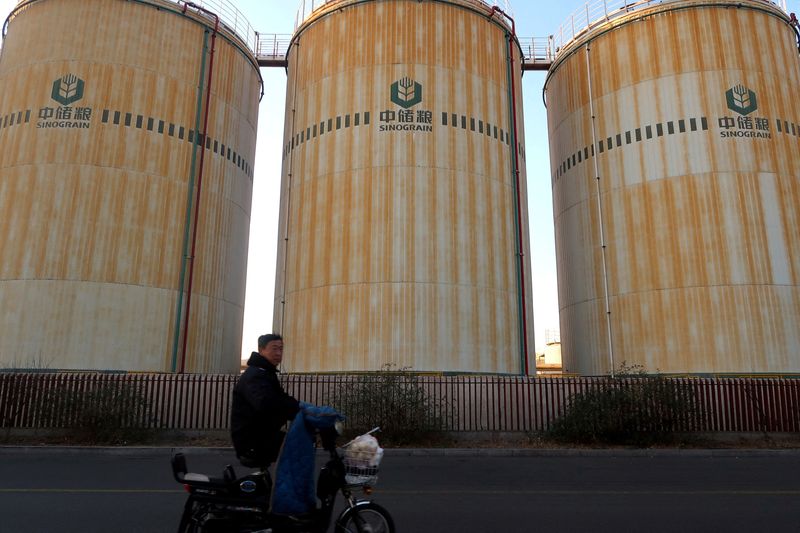
By Mei Mei Chu
BEIJING (Reuters) – China’s truck manufacturers released safety standards for vehicles carrying edible oil on Monday, as firms attempt to regain consumer trust after a report about fuel tankers transporting cooking oil rekindled fears about food contamination.
Despite Beijing’s best efforts to step up food safety controls in the past decade, China has struggled to overcome the damage done by a string of past food scandals.
The latest incident, in which a report by local daily The Beijing News alleged that fuel tankers had been used to transport soybean oil, cooking oil and syrup without cleaning the tankers in between, implicated state stockpiler Sinograin and cooking oil producer Hopefull Grain.
Both companies have said they would investigate the allegations.
The food safety commission of China’s State Council, or cabinet, has said it would conduct investigations and severely punish those found responsible.
State media have also slammed Sinograin for the “disregard for the life and health of consumers”.
But there was anger online, with posters questioning how long the practice had been allowed to take place without being noticed.
On Monday, CIMC Vehicles Group said it has worked with three subsidiaries to establish China’s first industry standard for road tankers transporting edible oil.
Investigations had found widespread food safety risks in the edible oil logistics industry due to a lack of standards, with a “serious phenomenon” of many liquid tankers transporting both edible liquids, such as molasses and soybean oil, and chemical liquids such as paraffin, it said.
The new standard specifies technical requirements and inspection rules for the transport and storage of edible oils, it said in a statement on WeChat.
Food companies have also attempted to distance themselves from the latest scandal.
To prove the safety of its product, one cooking oil brand posted a video on social media of an employee drinking its oil.
CONFIDENCE ERODED
The report has eroded confidence in China’s food safety regulations, undermining years of effort by Beijing to assure its consumers and importers that its products are safe.
In 2008, at least six children died and nearly 300,000 fell ill from consuming powdered milk laced with melamine, a toxic industrial compound, in a scandal that destroyed the credibility of the country’s dairy industry and prompted countries to ban China-made dairy products.
That scandal prompted Beijing to tighten its control on food producers, with a food safety law passed in 2009 and a national food safety commission established the year after.

But a string of incidents since have continued to damage the domestic food industry and prompted some Chinese consumers to turn to foreign brands.
In 2011, Chinese authorities detained 32 people for making and selling tonnes of cooking oil dredged from gutters.
This post is originally published on INVESTING.



